Rio 2016: Can Britain dominate cycling yet again?
- Published
- comments
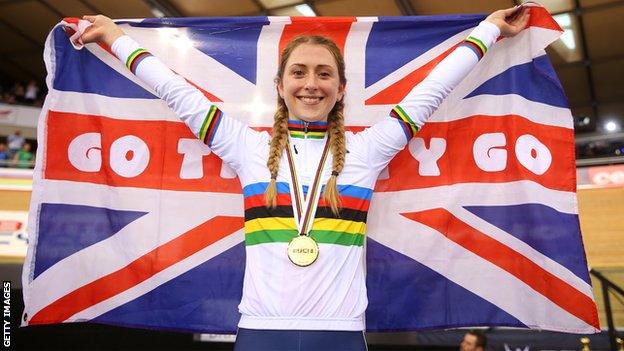
Laura Trott won one of five gold medals for Britain at the Track World Championships
With unprecedented success comes extraordinary expectation. Those who constantly achieve greatness get taken for granted and an audience accustomed to giddying glory keeps baying for more.
Those who create history, who change the rules, make it look easy. Want a gold medal? No problem, here are seven for you to whoop and holler about.
British Cycling has dominated track cycling at the last two Olympic Games. Seven gold medals in Beijing eight years ago, seven again on home soil in London four years later.
But as the world's best track cyclists gathered in London for the Track World Championships, the last major competition before this summer's Olympics, there were some doubts, some fears, for a team which has churned out Olympic greats with regular ease.
Just the three silver medals were won at last year's World Championships and this year began with middling performances and riders questioning coaches as Olympic qualification was botched. Emotions were high, the stakes higher with Rio just five months away.
Then came the crowd pleasing gold medals, from Laura Trott, Jason Kenny, Sir Bradley Wiggins, Mark Cavendish and Jon Dibben, and chests puffed out once more.
But how jubilant should Britain be with topping the medal table with five golds? Should we prepare ourselves for further Olympic success or should expectations be tempered?
'We must draw a line under past glories'
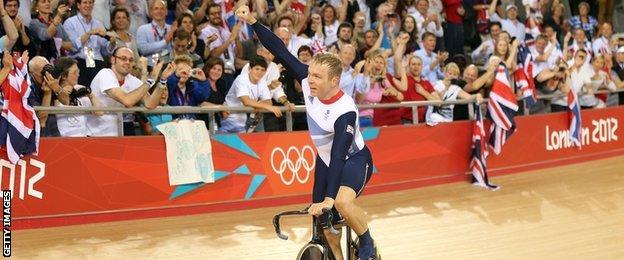
Sir Chris Hoy won six gold medals for Team GB in three Olympic Games
Britain's cycling team won seven golds, a silver and a bronze in London during that never to be forgotten summer of 2012. In Beijing they returned with 12 medals. A nine-medal haul after five days on the boards at the Lee Valley VeloPark suggests fans will be drinking from the same cup of success this summer again.
But former Olympic champion Chris Boardman says we must "draw a line" under the past because, this time, there is no Sir Chris Hoy (six Olympic golds) or Victoria Pendleton (two). This is the next generation. New faces, new goals.
"They performed bang on this week," says Boardman, a gold medallist in Barcelona in 1992.
"I said a few years ago that if they get three golds in Rio they've done well. There's no way they can maintain the level of performances they've achieved in the past two Olympic cycles.
"To lead the medal table is better than I expected, and the overall form is very much there. They've equipped themselves well, not necessarily in the events they would have loved, but they've been close enough that they're still looking good for Rio."
'Surprising mistakes made'
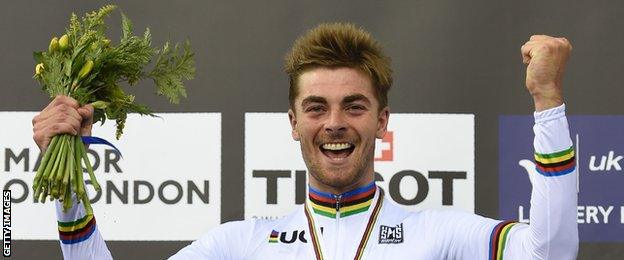
Jon Dibben, 22, won gold in the points race, an event which will not feature at the Olympics
Three of Britain's golds came in non-Olympic events - Trott in the scratch, Dibben in the points race and Cavendish and Wiggins in the madison. It would be Germany ruling the roost if those performances, as thrilling as they were, were discounted for argument's sake.
There were disappointments in east London, too. The men's and women's team sprint failed to make their mark on the opening day and, in Boardman's words, the women's team pursuit made a "right mess" of their qualification.
A quartet which was supposed to ride in unison was ragged, travelling at different speeds, and had to settle for bronze when gold was the target.
"I was surprised by some of the mistakes made earlier in the week because they were communication issues," says Boardman.
"There were disparities in abilities in the women's team pursuit, which shouldn't have been a surprise to anybody. Not knowing what's going on behind you for three laps was a real shocker, but it will have shocked them as well and they'll have gone away and worked something out. But I'm surprised they didn't do it before these championships."
But there were positives hidden in disappointments, notably Philip Hindes' phenomenal opening lap of 17.030 - the fastest of all 14 teams in the men's sprint, and the fastest time at sea-level.
'No comfort taken from worlds'
Wiggins will be hoping to end his track career with a British record eighth Olympic medal in Rio and Boardman says the former Tour de France winner, and his fellow team pursuit riders, proved in London that they are progressing.
They had to settle for silver this week, beaten by an Australian team who are likely to be their main rivals for gold, but the team's 22-year-old Owain Doull caught the eye, while Ed Clancy, a man who could not walk 12 weeks ago and needed to travel to the velodrome in a van because he could not sit in a car after recent back surgery, competed in the final to complete a remarkable recovery.
"Australia have two men to come into the team so that's going to go to the line. But Doull has proved himself to be a team pursuit rider of the present and future. That was an Olympic-standard final and he was matching Bradley Wiggins turn for turn. It was a courageous performance from Ed Clancy, too.
"In the Olympic disciplines, Britain have been in the hunt with slight ground to make up. There's no comfort to be gained from these worlds but there are no big disappointments either."
The Cavendish conundrum
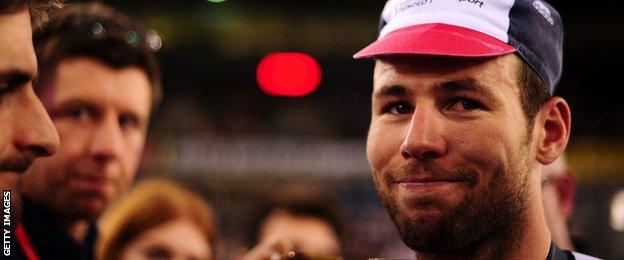
Cavendish has been told he must leave the Tour de France early if he wants to compete at the Olympics
Mark Cavendish has yet to win an Olympic medal. The 30-year-old has four world titles, 26 Tour de France stage victories and a road race world title, but his Olympic hopes remain in the balance.
The Manxman wants to compete in the omnium, but finished sixth in London, which was outside the top-three target he was told he needed to be considered for Olympic selection.
British Cycling boss Shane Sutton has said the Manxman will have to leave the Tour de France early if he wants to compete at the Olympics and Boardman also wants him to focus fully on the track.
But will Cavendish agree to abandon his commitment to ride the Tour for his Dimension Data team, possibly sacrificing his chance of wearing the yellow jersey for the fist time in the process?
"What I'd do with Mark is say 'if you do these things you can go to Rio'," says Boardman. "Those things would be commit to track first, commit four months to the track, and if you do those things you can go and, I suspect, Mark will look at all the responsibilities he's got and say 'I can't do that'.
"But I would give him the choice, give somebody the opportunity to succeed. He's trying to do what these guys have spent four years doing in just six months. He's a class act, but it's almost disrespectful to these guys to believe that that can happen in six months."
The British team have options, too. Three riders have qualified for the omnium - Cavendish included - and one of those, Dibben, won a world title on Friday. The 22-year-old Dibben, a rider of great potential according to Boardman, is also the stronger of the two in the team pursuit.
Will Britain continue to dominate?
British Cycling fans would be content to hear the national anthem ring around various Olympic velodromes in perpetuity, but were Britain to continue to trample over their rivals as they have done in the recent past they may end up killing off their competitors for good.
"The French are struggling to find cash to hire track time," explains Boardman. "Nations won't invest in teams which aren't delivering so it's not good for the sport for one nation to be so dominant for so long. In a sense, it's good that it's spread around."
- Published6 March 2016
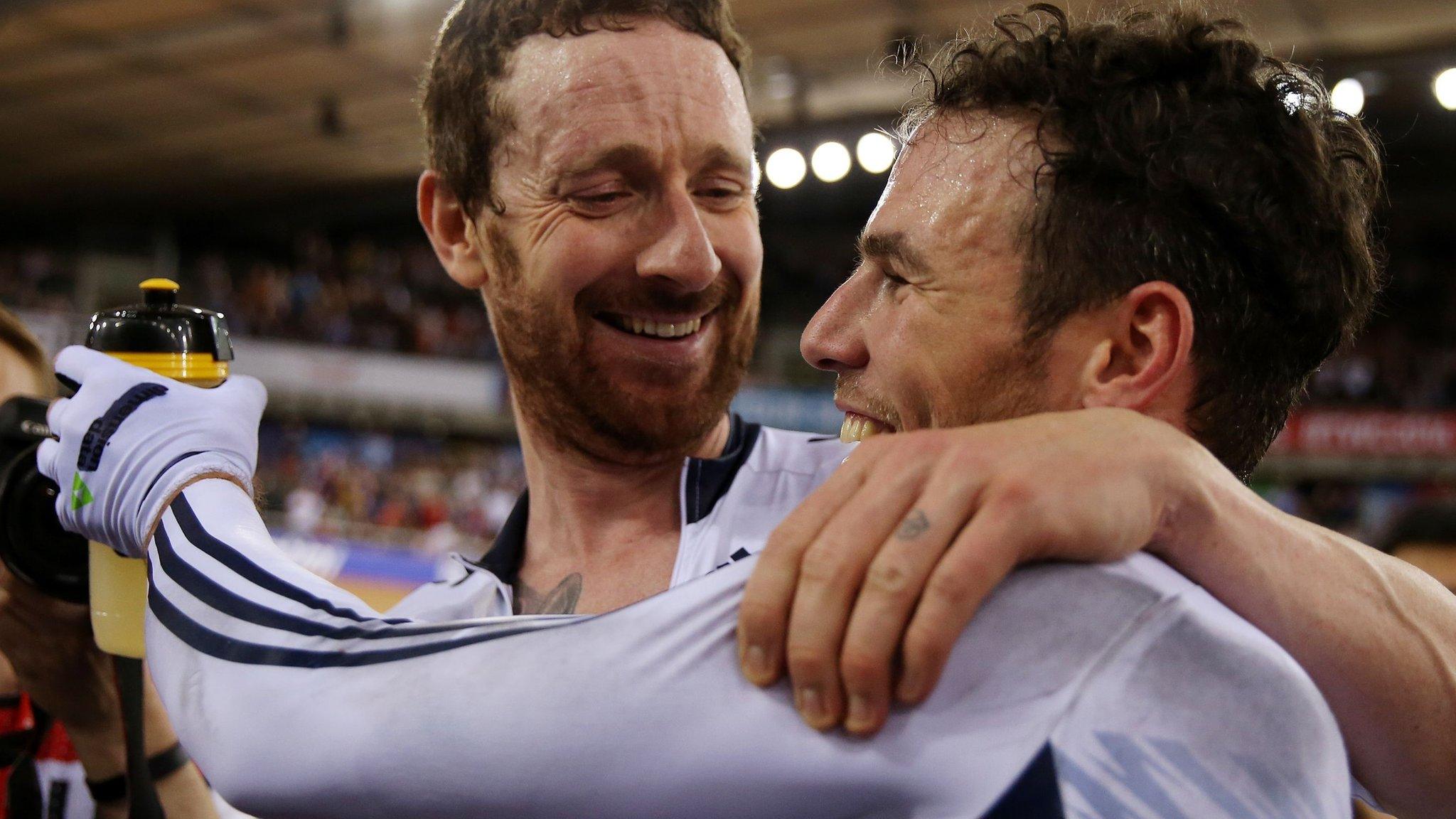
- Published6 March 2016
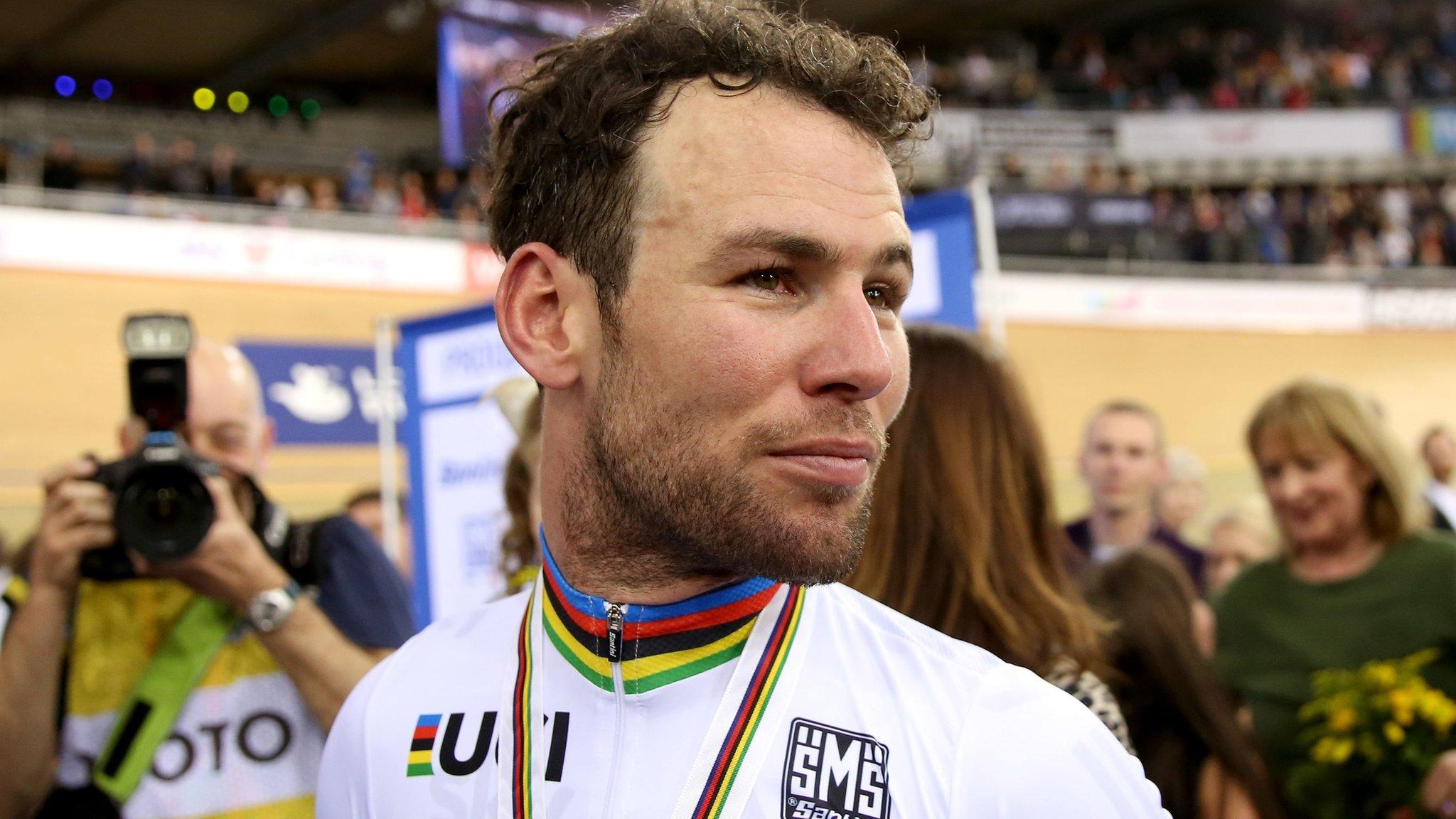
- Published2 March 2016
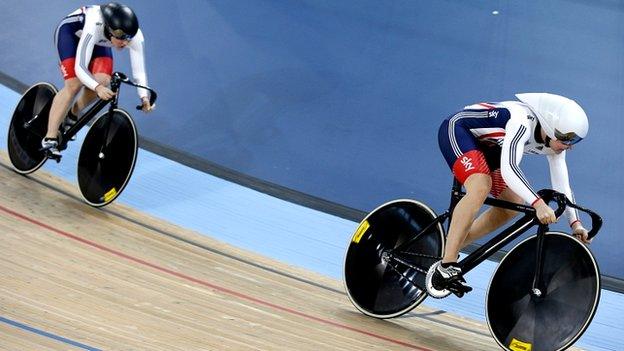
- Published19 July 2013
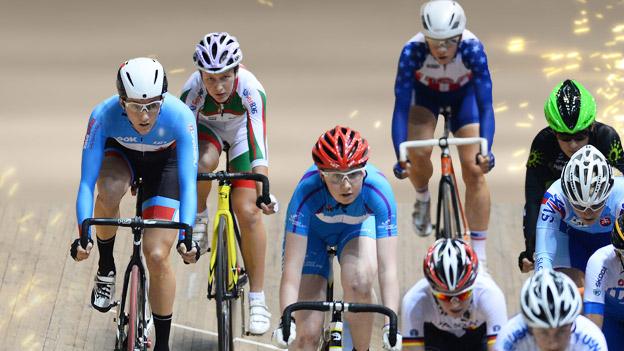
- Published19 July 2016
